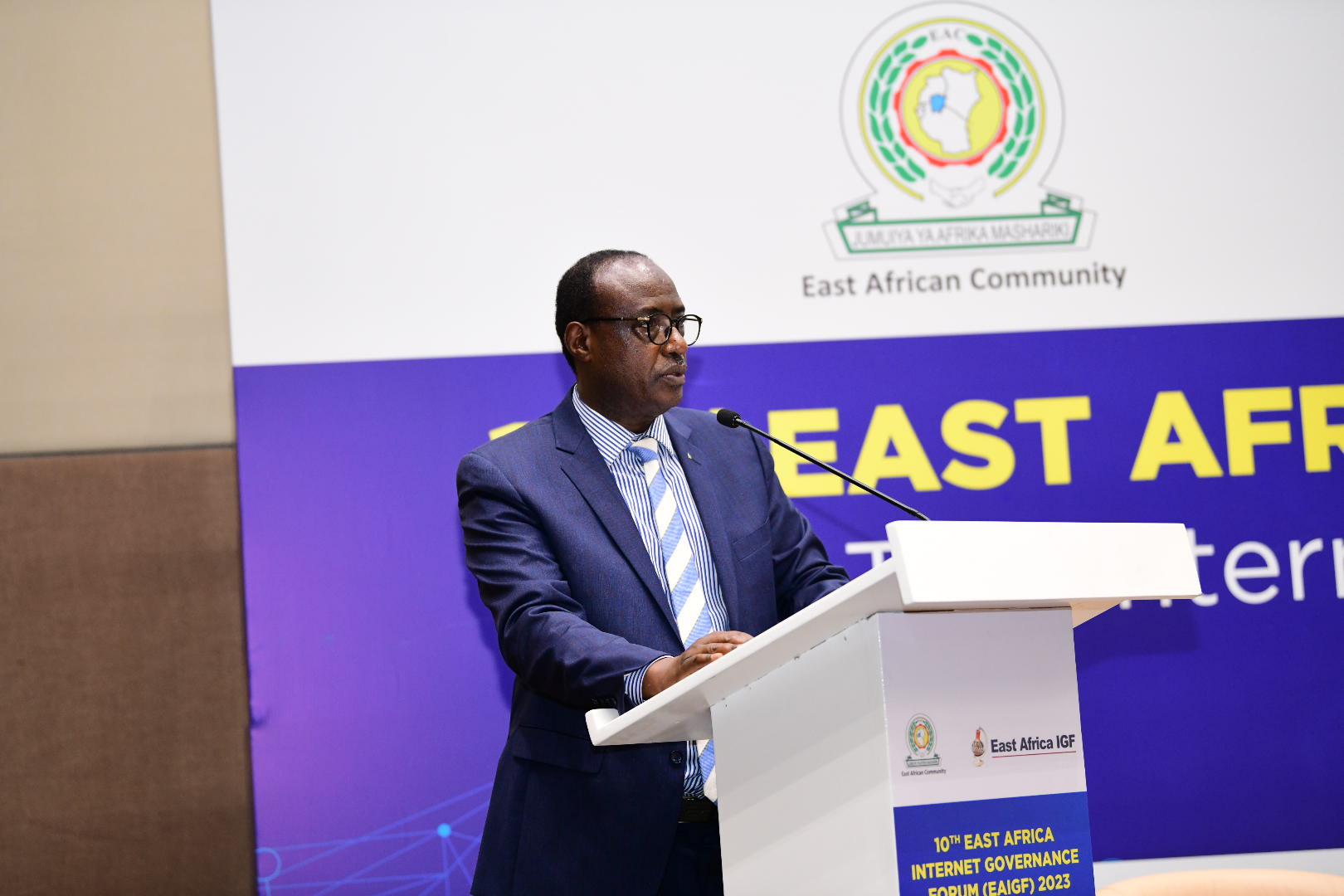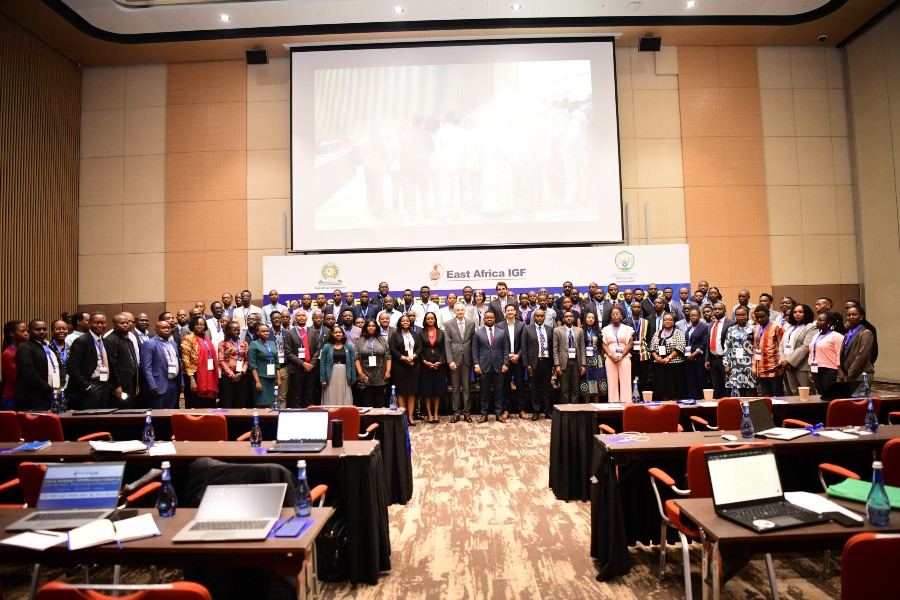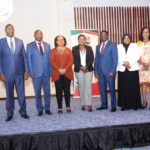The 10th Edition of the East Africa Internet Governance Forum (EA-IGF) convened in Kigali, Rwanda with a call for Information, Communication and Technology (ICT) experts in the region to take proactive steps towards ensuring that the internet continues to be a force for positive change in the region.
Jointly hosted by the East African Community and Rwanda Ministry of ICT and Innovation through the Rwanda Internet Community and Technology Alliance (RICTA), the Forum was convened under the theme: The Internet We Want – Empowering All People in East Africa. The theme is in line with the over-arching global Internet Governance Forum 2023 theme: The Internet We Want.
Rwanda’s Permanent Secretary, Ministry of ICT and Innovation, Yves Iradukunda, said that the internet was critical in facilitating the region’s vision of transforming into a digital economy and in doing so, the region must employ a multi-sectoral approach to ensure the people of the region are empowered by the internet.
“To create the internet we want, we must ensure that it is accessible to all and that it is not too expensive. We must therefore work towards ensuring access to the internet is affordable by taking advantage of the power of competition,” said Iradukunda.
The Permanent Secretary further called on ICT stakeholders to develop locally relevant content and applications for diverse sectors including education, healthcare, environment, agriculture, products that are useful to local communities, if the region is to create the internet we want.
“As we develop locally relevant content, as sector experts and other stakeholders we must work together to push for development of global regulations that facilitate development of digital economies,” added the Permanent Secretary.
The Permanent Secretary called upon the ICT experts and other stakeholders attending the forum to ensure that internet regulations and laws transcend national barriers and provide for a sustainable and safe digital sphere for all to use.
Speaking at the Forum on behalf of the EAC Secretary General, Dr. Peter Mathuki; EAC Principal ICT Officer, Eng. Daniel Murenzi noted that in the rapidly evolving digital age, the internet has become an indispensable part of our daily lives, transforming the way we communicate, work, trade and access information.
“The EA-IGF is a vital platform that plays a pivotal role in shaping the future of the internet in the East African region,” said Eng. Murenzi.
The EAC official noted that the internet had brought about remarkable opportunities for economic growth, education, and social development worldwide, as well as empowered individuals, businesses, and governments, fostering innovation and driving progress.
“While we have experienced these opportunities, there are various challenges that demand careful consideration and effective governance, this forum therefore provides a space for stakeholders from various sectors, including government, civil society, academia, and the private sector, to come together and address these challenges collaboratively,” he added.
Eng. Murenzi informed the forum that the EAC was readying for the launch the Eastern Africa Regional Digital Integration Project (EA-RDIP), a vital regional initiative that is set to transform and enhance the region’s integration into the digital economy. The project is set to revolutionize the way the region connects, trades, and engages digitally.
“The Eastern Africa Regional Digital Integration Project is in response to the discussions and recommendations of the 9th East Africa Internet Governance Forum and aims to drive digital market integration by expanding broadband connectivity and improving the digital service environment,” he said.
The project aligns with regional priorities, emphasizing the need to bridge the digital divide, reduce connectivity costs, and empower marginalized groups such as youth, persons with disabilities, and women. The project development objective to increase access to broadband and digital services, fostering the development and integration of digital markets in East Africa.
In realizing the objectives of the project, the internet remains the core facilitator. The EA-IGF then is not merely a gathering of experts and stakeholders; it is a critical platform for shaping the future of the internet in the region.
Speaking during the Forum, Peter Primus, Chargé d’ Affair, Germany Embassy, Rwanda noted that for many years Germany has been supporting the Internet Governance Forum given the belief that “The Internet We Want” does not belong to governments or private companies alone.
“To shape the rules and the internet of tomorrow we need to bring all voices together, from academia, civil society, private sector and governments, and have them heard, and each of these stakeholders may have a different perspective and opinion on topics around Internet Governance. But this is a good thing, we need to listen, challenge and discuss with each other.” said Primus.

In closing the one-day forum, the Minister of State in Charge of East African Community, Ministry of Foreign Affairs and International Cooperation, Republic of Rwanda, Prof. Nshuti Manasseh reiterated the importance of the Internet Governance Forum for the region.
“Developments in the region can only be driven by digital frameworks and platforms, and they must not exclude anyone, and it only thorough such discussion that we are able to established our unified position as a region,” said Prof. Manasseh.
“As the continent we have missed many revolutions, we can not afford to miss the digital revolution,” he added.
The Minister called upon all stakeholders at the forum to ensure that the decisions and resolutions arrived at were implemented to ensure universal connectivity of an internet is affordable, and accessible by all.
“The internet is a necessity and no longer a luxury, no one must be left behind,” concluded the Minister.
The East African Internet Governance Forum (EAIGF) serves as a pivotal platform for stakeholders across the region to deliberate on crucial internet-related issues. Through collaborative discussions and knowledge sharing, it fosters a deeper understanding of digital governance, cybersecurity, and access challenges, ultimately driving forward a more inclusive and secure digital landscape in East Africa.
EAIGF’s annual gatherings facilitate meaningful dialogues, enabling stakeholders to shape policies and strategies that positively impact the region’s digital future.





